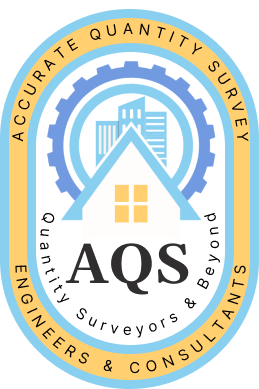Contract, Tendering and Estimation
Ensure your project's success with our precise and comprehensive contract, tendering, and estimation solutions, tailored to meet your unique requirements and industry standards. AQS > Contract, Tender and Estimation

Contract, Tendering and Estimation
Contract, tendering, and estimation are essential aspects of the construction industry. Let's look at each of these terms and their significance
“When you bid on contracts, the competition is so tough that anything improves your supply chain can gain you a huge advantage - you have to have a differentiator”
Contract: In the construction industry, a contract is a legally binding agreement between two or more parties that outlines the terms and conditions of a construction project. Contracts provide a framework for the rights, obligations, and responsibilities of each party involved, including the client, main contractor, subcontractors, and suppliers. Contracts typically cover aspects such as scope of work, project duration, payment terms, dispute resolution mechanisms, and other contractual provisions. Contracts help establish clear expectations and provide legal protection for all parties involved in the construction process.
Tendering: Tendering refers to the process of inviting bids or proposals from contractors or suppliers for a construction project. The client or the main contractor issues a tender document that includes project specifications, drawings, and other relevant information. Contractors and suppliers then submit their bids, which include their proposed price, project timeline, and other details. The tendering process allows the client to compare different bids and select the most suitable contractor or supplier based on factors such as price, experience, qualifications, and references. Tendering promotes competition and transparency in the procurement process.
Estimation: Estimation is the process of calculating or estimating the costs associated with a construction project. It involves assessing the quantities of materials, labor, and equipment required and assigning costs to these quantities. Estimation includes factors such as material prices, labor rates, equipment rental costs, overhead expenses, and profit margins. Estimation is typically conducted by quantity surveyors or cost estimators who use their expertise and knowledge of the construction industry to provide accurate cost estimates. Estimation helps clients and contractors plan and budget for the project, assess its feasibility, and make informed financial decisions. Estimation is closely tied to the tendering process as contractors and suppliers use cost estimates to determine their bid prices. Accurate estimation is crucial for ensuring that projects are financially viable and that bids are competitive. It also helps manage project costs and avoid potential cost overruns. Before beginning any construction project, we submit a proposal or tender to the concerned party to manage the undertaking of the project. We also prepare a contract or agreement which is a set of obligations that falls under the jurisdictions of the civil law tradition. Contract laws refer to the rights and duties that arise from agreements. This process is initiated once cost estimates are ready. A well-prepared tender can help you win that big construction project. However, tender preparation is a time-consuming process and hence, you need to weigh the pros and cons carefully before preparing tenders. Our experts will assist you in this process. These are some of the steps you should take before preparing a tender:
Tendering: Tendering refers to the process of inviting bids or proposals from contractors or suppliers for a construction project. The client or the main contractor issues a tender document that includes project specifications, drawings, and other relevant information. Contractors and suppliers then submit their bids, which include their proposed price, project timeline, and other details. The tendering process allows the client to compare different bids and select the most suitable contractor or supplier based on factors such as price, experience, qualifications, and references. Tendering promotes competition and transparency in the procurement process.
Estimation: Estimation is the process of calculating or estimating the costs associated with a construction project. It involves assessing the quantities of materials, labor, and equipment required and assigning costs to these quantities. Estimation includes factors such as material prices, labor rates, equipment rental costs, overhead expenses, and profit margins. Estimation is typically conducted by quantity surveyors or cost estimators who use their expertise and knowledge of the construction industry to provide accurate cost estimates. Estimation helps clients and contractors plan and budget for the project, assess its feasibility, and make informed financial decisions. Estimation is closely tied to the tendering process as contractors and suppliers use cost estimates to determine their bid prices. Accurate estimation is crucial for ensuring that projects are financially viable and that bids are competitive. It also helps manage project costs and avoid potential cost overruns. Before beginning any construction project, we submit a proposal or tender to the concerned party to manage the undertaking of the project. We also prepare a contract or agreement which is a set of obligations that falls under the jurisdictions of the civil law tradition. Contract laws refer to the rights and duties that arise from agreements. This process is initiated once cost estimates are ready. A well-prepared tender can help you win that big construction project. However, tender preparation is a time-consuming process and hence, you need to weigh the pros and cons carefully before preparing tenders. Our experts will assist you in this process. These are some of the steps you should take before preparing a tender:
- Acquire the bid documents and analyze them
- Ensure that you are a perfect match in terms of the required technical skills and experience for the particular project
- Is the work in line with your strategy and vision?
- Analyze the costs and benefits
- Evaluate how the contract would affect other work, resources and ability to take on new projects


